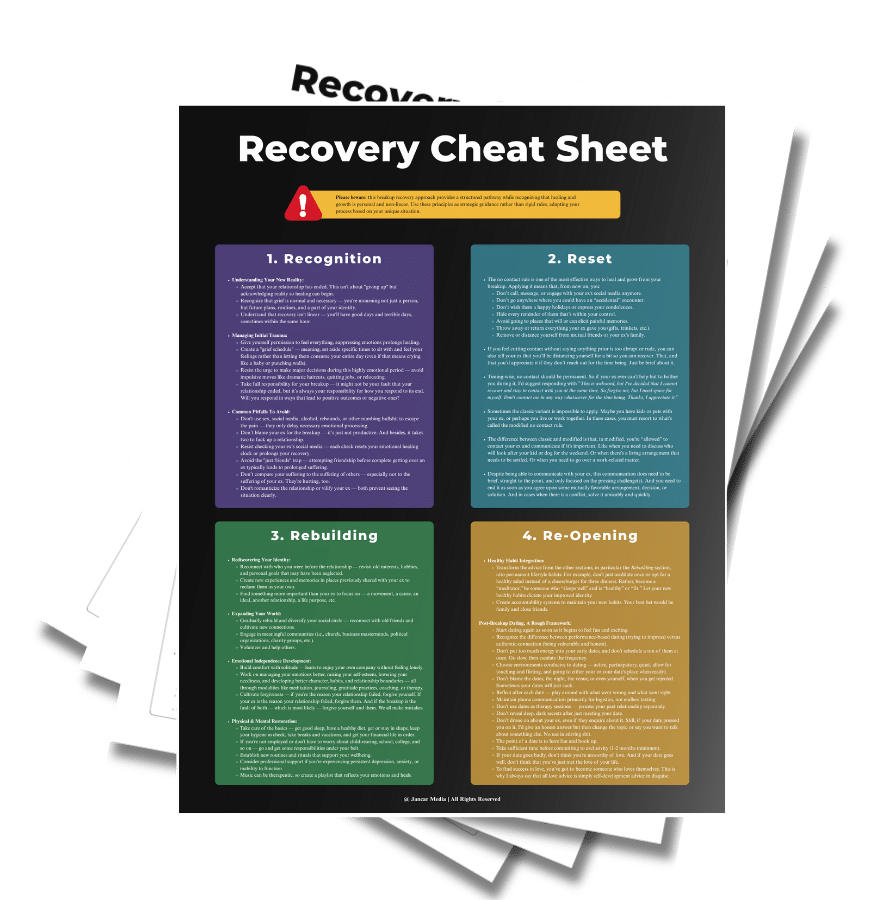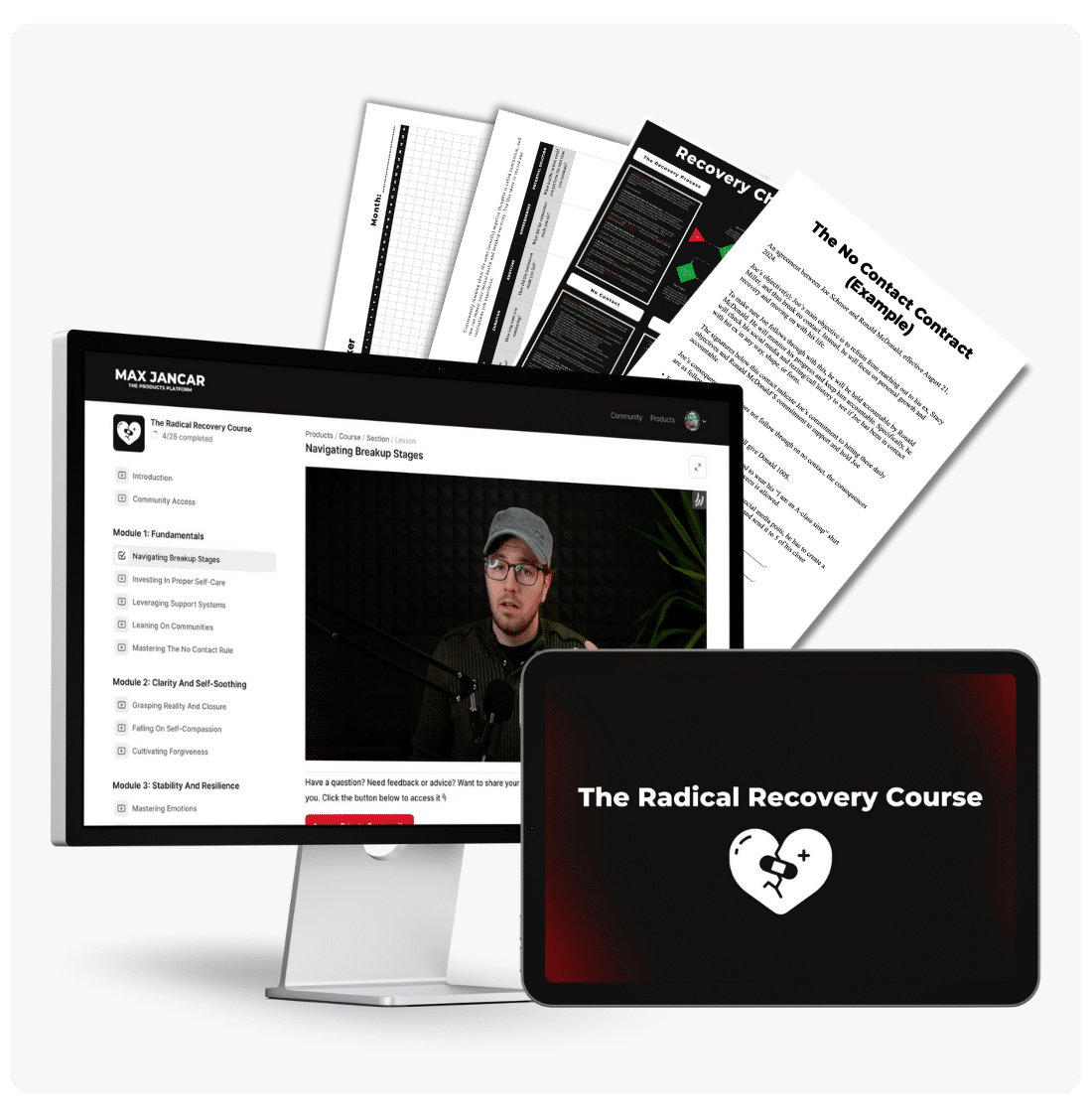Click play to listen to this article.
As I opened my eyes, I found myself lying in the middle of a circle-shaped earthly place. When I rolled on my side and looked up, I saw big, bushy trees above me and an infinite gaping sky dotted with stars. When I looked down, I saw the ground blanketed in pinecones, twigs, patches of half-stomped grass, and dead leaves from which the evening moon kaleidoscoped.
As I looked around, I saw a bonfire in the middle of the circular area I had been thrown into. By whom, or what? I have no idea. Around this bonfire sat dozens of indistinguishable and unfamiliar faces. The only one painted in color and clear was the face of my ex.
Suddenly, the dream scene shifted, and I found myself transported beside her. Her hair radiated, her face touched by a golden glow of the whirling flames that swallowed the whole area in supernatural beauty. We were sitting on a wooden crate when I noticed our legs were touching. What the fuck, I thought? Confused by her behavior, I awkwardly made eye contact.
At that moment, nostalgia spurred through my bloodstream. Melancholy engulfed me. And I began to shiver. The air got warm and suffocating, like being in a sauna, and the atmosphere obtained a trance-like quality, like when you’re baked as fuck. It felt as if time stopped still. For a flicker, I was 16 again.
Yet, in that beautiful moment, I didn’t feel love or lust. All I felt was grief. But it was not directed towards my ex. This grief was for myself — for a forgotten identity I once knew.
This is what our little insight is about.
A guide to breakup recovery based on embracing discomfort, extracting wisdom from dark moments, and healing through evidence-based practices.
Order Your CopyThe Psychology Of Losing Yourself
When you get into a relationship, your identity — that is, largely the aggregation of your values — fuses with your partner’s, creating a shared identity. And when you break up with that partner, this shared identity rips in half, leaving each person with only a part of who they are. (1) (2)
Do you ever feel a void inside your chest, like a part of you is missing? That’s the part of your shared identity that’s missing. And exploring the feelings in that void, even questioning or trying to pinpoint it is what makes people feel like they’ve “lost themselves.” (3)
When you lose yourself, you feel rudderless, deprived of clear direction, and as though your desires and decisions no longer matter. Losing yourself also calls into question who you are and your value as a human being. At its core, it launches you into an existential crisis — a crisis of hope.
The way you get yourself out of this mess is by patching up that painful void in your identity that is causing you to suffer in the first place. How? By reconstructing and reevaluating your collection of personal values.
In other words, you must find new and healthy values to live by now that the old ones have failed — as all values eventually do. Failed in that you can’t say you value your relationship anymore because there is no relationship to value anymore.
Why the focus on personal values? Because they’re the building blocks of identity. Once you become aware of and define them, your feeling of alienation will likely evaporate, making the breakup easier to bear.
This cheat sheet lays out 40+ solutions to overcoming a breakup so you can create a new opportunity for love — be that with your ex or someone completely different.
Get The Free Cheat SheetGrieving Your Old Identity
Before you begin tinkering with your values, you must grieve your old identity. You must grieve your past self like I grieved mine in that dream from earlier.
And believe it or not, you’ll be missing this person a lot going forward. Losing a past self feels like losing a best friend who, despite his loyalty and likability, you deep down know was a horrible influence on you.
I occasionally still wonder what life would be like if I still embodied my past self. That is, if I was still an irresponsible, selfish, yet at times quite charming, playboy who used sex, intimacy, and drugs to suppress his insecurities, abandonment issues, and recent heartbreak.
You’ll eventually start to think about the same things. You’ll also probably feel a degree of nostalgia for your past self. Don’t resist. Let yourself grieve. And once you feel like you’re done, turn to appreciation and gratitude. Because without your past self, you would have never become the better person you are now.
Differentiating Between Good And Bad Values
While you’re grieving, but before you start rebuilding your value hierarchy and, with it, your identity, take a moment to notice the difference between good and bad values. That is, the values that enrich your life and the values that make you miserable and hurt those around you.
Taking notes from the New York Times mega-bestseller, The Subtle Art Of Not Giving A Fuck, good values are 1) reality-based, 2) socially constructive, and 3) immediate and controllable. In contrast, bad values are 1) superstitious, 2) socially destructive, and 3) not immediate or controllable. Also, good values tend to be achieved internally, while bad values tend to be achieved externally.
Courage, for example, is a good value. It’s an ideal we strive toward, even though we don’t always live up to it. It’s also reality-based, has the power to save people, and is entirely under our control. Another good value would be integrity. Again, it reflects reality, benefits others, and is entirely under your control.
On the other hand, high status in your social life would count as a bad value. First, it’s not based on reality: you can’t always be high-status (nor should you attempt to be). Second, it’s socially destructive because people who want to be seen as high-status usually resort to putting people down to feel better about themselves. And third, it’s just not in your control. You can’t control how people react to you, how they perceive you, and what opinion of you they form.
More examples of good values: acceptance, friendship, accountability, respect, giving, cleanliness, courage, commitment, ambition, vulnerability, creativity, curiosity, patience, wisdom, health.
More examples of bad values: being rich for the sake of being rich, sleeping with a lot of people and measuring your self-worth by that metric, being the center of attention, being a manipulative dick to get something from someone, being liked by everybody, stealing money from your grandma to buy a new Xbox.
Defining Your Values
An online course that teaches you how to heal and grow from a breakup so you can create a new possibility for love — with or without your ex.
Get Instant AccessHere’s one way of doing it…
Imagine you’re working at a local corner market, you’re making $14 an hour, you quit college because it was too hard, and you’re living a sedentary life. No, scratch that — you’re not living at all.
Deep down, you want to be a [insert profession here], but you don’t have the guts to go for it; you couldn’t even finish college for that profession. And to make things worse, now you’re suppressing your desires by playing video games all day and gorging on Big Macs.
Then, one peaceful evening while you’re working, a guy breaks into your store, pulls you over the counter, grabs you by the collar of your shirt, and drags you outside into the empty parking lot.
It was dark when you got dragged out, the pavement layered on the night, black on black. No one could see you. No one was around to hear you scream and call for help. And before you know it, you have a gun pushed to your cheek.
Seconds feel like minutes, and then you hear it; the stranger asking you, almost shouting, “Fill in the blank! How would you want to spend your life if you could do anything? Be honest with me. I have a gun…”
What would you answer? Did you grow up wanting to be a chef? Do you want to settle down in a healthy relationship, marry, and have two and a half kids? Do you want to start an online business and travel around the world? Think about these things, and give an honest answer — perhaps even write it down somewhere.
And don’t judge how you envision your desires, your ideal life. It is what it is: embarrassing, weird, over-the-top, mundane, whatever. It doesn’t matter as long as this vision is one you genuinely want for yourself.
That’s our first way of defining values. The second is to observe your behavior and scrutinize your actions.
The theory goes that your values guide your actions. Therefore, to find the ones you hold, look at your actions and how they differentiate or resemble whatever you find important. Your values will always be reflected in the way you choose to behave.
If you say you want to be a chef, but you quit culinary school and went to work at a dead-end job instead, then there’s a value disconnect. You clearly don’t want to be a chef; you value the routine and whatever other benefit a dead-end job gives you more.
Another example. If you can see yourself traveling around the world, running an online business, making that sweet, sweet Internet Moneyz, yet you just extended your contract to work as a baker for the next five years, then you’re contradicting yourself. You say you want one thing, but your actions scream another. Therefore, it’s clear what you really value.
The last way to define your values is to ask a friend about your behaviors. Then, similar to our previous method, reflect on those behaviors and how they differentiate or resemble your values.
This doesn’t need to be complicated by the way. You can for instance ask, “Based on what you know about me, what would you say are some of my most prominent behaviors?”
Alternatively, you can also ask people about your values directly. For example, ”From your perspective, what matters most to me in my life? What do you think my personal values are?”
As you’re asking your friends these sorts of questions, give them time to answer. Because it can be tricky sometimes. And take every answer with a grain of salt. Some people just want to move on to another topic, and others just don’t have enough awareness developed to give you a reliable or accurate answer.
Once you defined your new values, it’s time to judge them.
Judging Your New Values
Let’s pretend you want to be a chef. Do you want to be a chef because you see how rich and famous Gordon Ramsay is? Do you think being a chef increases your social status and makes you more desirable? Or do you simply love food and want to spend your days working with it and creating mouth-watering, jizz-before-you-even-taste-them dishes?
Put differently, are you chasing fame, money, and potential foursomes, or are you trying to master cooking for the sake of mastering cooking — because you love the art?
Asking yourself these things will help you uncover the reasons for making certain values important to you. And once your motivation for them isn’t as hazy anymore, reflect if it’s healthy or not.
If it’s not, I suggest dropping the value or rethinking your relationship with it. But if the motivation — as well as the value — is healthy, proceed to our finale: embodying your newly defined values.
Embodying Your New Values
You’ve read that right. You don’t just pick your values out of thin air and magically find yourself basing your life around them. You need to consistently embody them through a breadth of experiences to make them stick.
Here’s how to go about it.
- Pick a value to embody. Make sure it’s good and that you have healthy intentions underpinning it. Let’s pretend you’ve picked honesty.
- Set a goal aligned with that value. For example, “For the next ten days, when someone asks me for an opinion, I will give an honest one, even if it feels uncomfortable.”
- Mentally track your progress. Are you living a life aligned with the value you picked or not? Ask yourself this question multiple times a day throughout the weeks or months.
What tends to happen is that while you’ll be embodying your new value, the emotional benefits of that value will inspire you to pursue it further, to set even loftier goals around it.
Eventually, living by that value will begin to feel automatic. At which point, congrats — you’ve embodied a value. Next repeat this process with a new value you wish to adopt. Then a new one, and a new one, and a new one… And before you know it, you’ll not only find yourself again, but you’ll become a better person as well.
This cheat sheet lays out 40+ solutions to overcoming a breakup so you can create a new opportunity for love — be that with your ex or someone completely different.
Get The Free Cheat SheetRelated Reading
- How To Grow From Your Breakup Pain (7 Science-Backed Ways) April 20, 2022
- How To Deal With With Regret After A Breakup February 4, 2024
- How To Stop Obsessing Over Your Ex: 12 Solutions For Success March 29, 2024
- Never Suffer Alone September 7, 2023
- A Realist’s Guide To Finding A Life Purpose After A Breakup September 10, 2021
- Deserving Is Not The Point September 27, 2023



